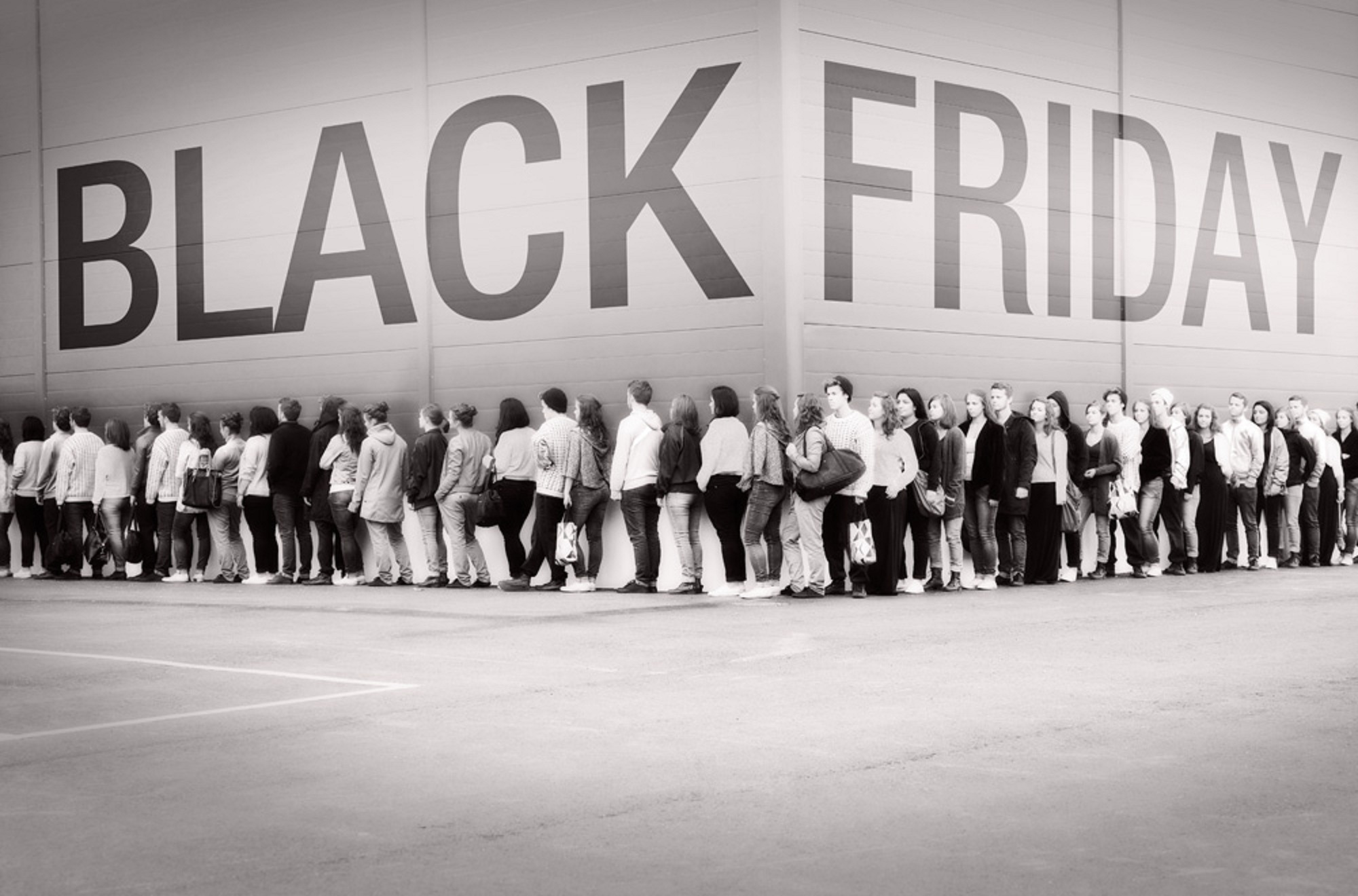
Black Friday’s Shift in Power
Let’s talk about Black Friday for a moment and the new breed of consumers it has created.
There have been several factors that have led to the rise of this new type of customer. One of the first being global recession, and the second being the rise of the internet. Ever since the global recession in 2008, shoppers have been very weary of their spending habits. Always looking for the next sale, buying in bulk, and constantly comparing prices. Businesses struggled as well. In order for them to stay afloat during these times, they had to find a way to sell their excess stock that was piling up, and the easiest way of managing that is to have a giant sale. This is where we see the birth of Black Friday.
However, it’s become an unfortunate catch 22 for retailers. By constantly lowering their prices, they have conditioned their clients to only shop during sales. Customers essentially demand sales on Black Friday now as if it’s the new norm. Dimitrios Tsivrikos, consumer and business psychologist at University College London, explains that shoppers are unconsciously addressing sales from an evolutionary perspective, “They’re becoming hunters and gatherers again, fighting for resources, wandering around taking everything off the shelves.” All in name of our fear of missing out of that one great sale. Humans may be irrational, but we are still fairly predictable.
Over the past few years, consumers have proven that they are truly the ones in control and the brands and businesses are the ones trying to keep up. Even though the “customer isn’t always right,” they definitely still get their way. If one business can’t provide something at the right price, it’s certain that there are five more who can, whether at a store or online.
There have been a few retailers who have stopped succumbing to this pressure, most recently with REI, an American outdoors company, who would rather give their staff a day off to enjoy the outdoors than put them through the so-called torture of working Black Friday. However, the potential to capitalize on the newly conditioned customer during Black Friday is almost unavoidable to businesses as they still have to keep up with their competitors. So it’s back down the rabbit hole they go, unable to break the shopping cycle.
Whether you’re a couponer, average shopper, or just a bargain hunter, the sensible way to shop is to know exactly what you want before you start looking. Buying something purely because it’s on sale is still a waste of money if you don’t need it.
Let’s talk about Black Friday for a moment and the new breed of consumers it has created.
There have been several factors that have led to the rise of this new type of customer. One of the first being global recession, and the second being the rise of the internet. Ever since the global recession in 2008, shoppers have been very weary of their spending habits. Always looking for the next sale, buying in bulk, and constantly comparing prices. Businesses struggled as well. In order for them to stay afloat during these times, they had to find a way to sell their excess stock that was piling up, and the easiest way of managing that is to have a giant sale. This is where we see the birth of Black Friday.
However, it’s become an unfortunate catch 22 for retailers. By constantly lowering their prices, they have conditioned their clients to only shop during sales. Customers essentially demand sales on Black Friday now as if it’s the new norm. Dimitrios Tsivrikos, consumer and business psychologist at University College London, explains that shoppers are unconsciously addressing sales from an evolutionary perspective, “They’re becoming hunters and gatherers again, fighting for resources, wandering around taking everything off the shelves.” All in name of our fear of missing out of that one great sale. Humans may be irrational, but we are still fairly predictable.
Over the past few years, consumers have proven that they are truly the ones in control and the brands and businesses are the ones trying to keep up. Even though the “customer isn’t always right,” they definitely still get their way. If one business can’t provide something at the right price, it’s certain that there are five more who can, whether at a store or online.
There have been a few retailers who have stopped succumbing to this pressure, most recently with REI, an American outdoors company, who would rather give their staff a day off to enjoy the outdoors than put them through the so-called torture of working Black Friday. However, the potential to capitalize on the newly conditioned customer during Black Friday is almost unavoidable to businesses as they still have to keep up with their competitors. So it’s back down the rabbit hole they go, unable to break the shopping cycle.
Whether you’re a couponer, average shopper, or just a bargain hunter, the sensible way to shop is to know exactly what you want before you start looking. Buying something purely because it’s on sale is still a waste of money if you don’t need it.




